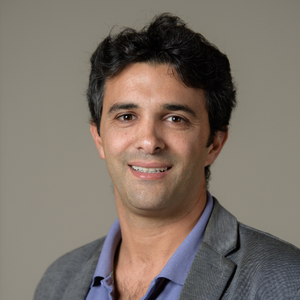The current treatment of
patients diagnosed with advanced or metastatic head and neck cancer (HNC) is
ineffective. Ben-Gurion University of the Negev researchers, along with their
international colleagues, have investigated and validated a potential treatment
combination against the aggressive disease driven by hyper-activation of a
specific signaling pathway, which is found in over 40% of HNC patients.
Their findings were just published in the prestigious Journal
for ImmunoTherapy of Cancer.
Specifically, the authors showed in pre-clinical HNC models that treating
tumor-bearing mice with a therapy that blocks this signaling pathway,
sensitizes tumors to the immunotherapy of anti-PD1, resulting in the
disappearance of tumors after the therapy combination. This effective treatment
was validated in four HNC cancer models, and most mice were cured with no
recurrent disease. Together with Dr. Pierre Saintigny, du centre de lutte contre le cancer Léon Bérard de Lyonת the authors also
validated some of the findings in HNC patients.

The research was led by PhD student Manu Prasad in the laboratory of Prof. Moshe Elkabets (pictured above) in the Faculty of Health Sciences at Ben-Gurion University of
the Negev.
"Our unique ability to generate pre-clinical HNC models and to investigate
new treatment and treatment combinations provides hope for HNC patients. We
sincerely hope that oncologists will test this treatment combination in HNC
patients, as improving immunotherapy efficacy is crucial for prolonging the
survival of cancer patients," says Prof. Elkabets.
The authors also showed for the first time in mice bearing HNC that the
treatment should be given sequentially. They found that a short treatment with
trametinib is sufficient to sensitize anti-PD-1 resistant tumors. This
sensitization happens because trametinib treatment, on the one hand, inhibits
tumor cell proliferation and, on the other hand, down-regulates the expression
of an immunosuppressive factor that determines the propagation of
immunosuppressive cells in the tumor site. This effect enables cytotoxic white
blood cells to reach the tumor site, and together with anti-PD1, can kill the
tumor cells efficiently. However, when mice were treated with prolonged
trametinib treatment, tumors failed to respond to immunotherapy.
The study was conducted by national and international groups from Soroka
University Medical Center and Barzilai Medical Centers, Memorial Sloan
Kettering, and Heidelberg Hospital.
This research was funded by the DKFZ-MOST (#001192), Israel Science Foundation (Grant no. 700/16); Israel Science Foundation (Grant no. 302/21); ISF and NSFC Israel-China project to (#3409/20); the United States—Israel Binational Science Foundation (BSF, 2017323); the Israeli Cancer Research Foundation (ICRF, 17–1693-RCDA); the Concern Foundation (#7895). Work was carried out with the help of the AFER Endowment Fund for Medical Research. LGTM is supported by the National Institutes of Health (R01 DE027738), the Sebastian Nativo Fund, the Jayme and Peter Flowers Fund; Fellowships: the Alon Fellowship to ME, Kreitman fellowship, and Midway Negev fellowship from the Ben-Gurion University of the Negev to MP.
Media Coverage:
Israel21C
JPost
World Israel News